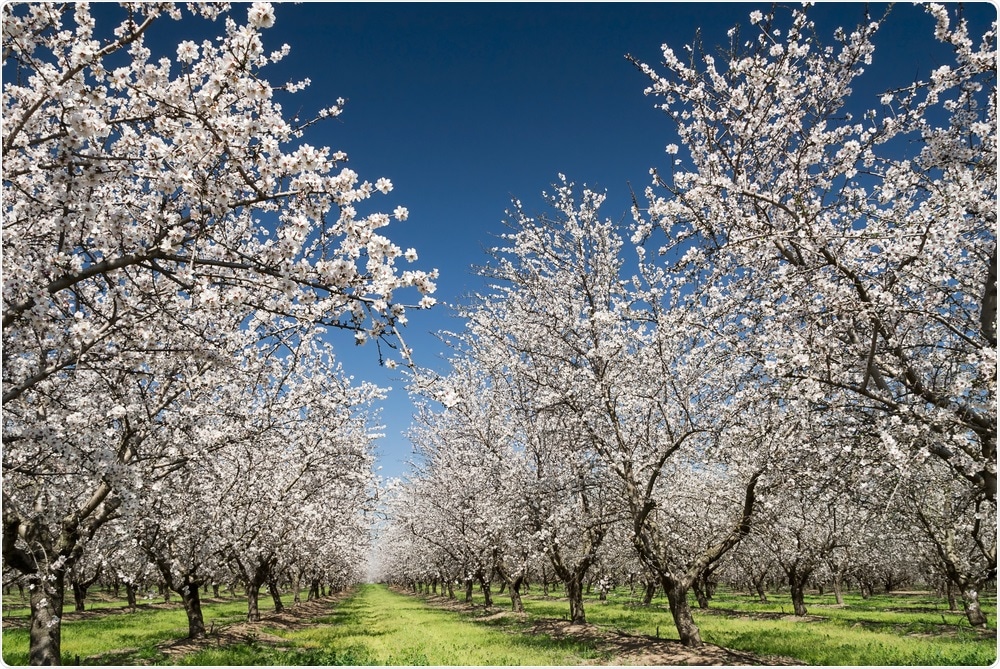Recycling trees onsite can sequester carbon, save water and increase crop yields, making it a climate-smart practice for California's irrigated almond orchards, finds a study from the University of California, Davis.

Image Credit: Terrance Emerson/Shutterstock.com
Whole orchard recycling is when old orchard trees are ground, chipped and turned back into the soil before new almond trees are planted.
The study, published in the journal PLOS ONE, suggests that whole orchard recycling can help almond orchards be more sustainable and resilient to drought while also increasing carbon storage in the soil.
"To me what was really impressive was the water piece," said corresponding author Amélie Gaudin, an associate professor of agroecology in the UC Davis Department of Plant Sciences. "Water is central to how we think about agriculture in California. This is a clear example of capitalizing on soil health. Here we see some real benefits for water conservation and for growers."
BURN VS. TURN
Drought and high almond prices have encouraged higher rates of orchard turnover in recent years. The previous practice of burning trees that are no longer productive is now restricted under air quality regulations, so whole orchard recycling presents an alternative.
For the study, scientists measured soil health and tree productivity of an almond orchard that turned previous Prunus woody biomass back into the soil through whole orchard recycling and compared it with an orchard that burned its old trees nine years prior.
They also experimentally reduced an orchard's irrigation by 20 percent to quantify its water resilience.
Their results found that, compared with burn treatments, whole orchard recycling can:
- Sequester 5 tons of carbon per hectare
- Increase water-use efficiency by 20 percent
- Increase crop yields by 19 percent
This seems to be a practice that can mitigate climate change by building the soil's potential to be a carbon sink, while also building nutrients and water retention. That can be especially important as water becomes more limited."
Gaudin.
Study co-authors included Emad Jahanzad and Kelsey Brewer of UC Davis; Brent Holtz, Sean Hogan and Cameron Zuber of UC Agriculture and Natural Resources' Cooperative Extension; and David Doll, who was formerly with UC Cooperative Extension.
The study was funded by a Specialty Crop Block Grant Program of the California Department of Food and Agriculture and the Almond Board of California.